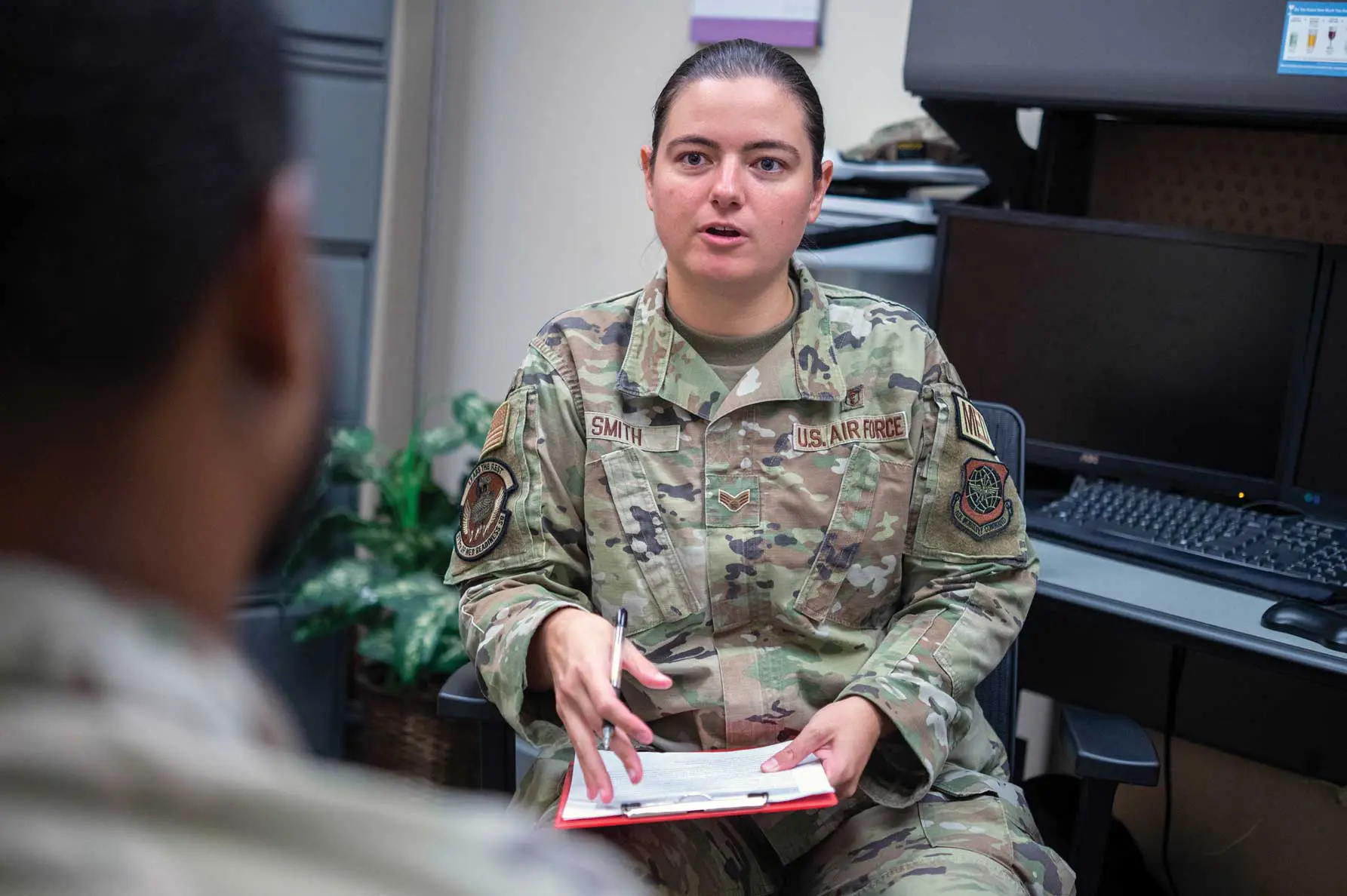TARGETED CARE: The U.S. Air Force Mental Health Initiative
By MS. TIFFANY L. TOLBERT, STAFF WRITER
According to Maj Magin A. Day—a Mental Health Element Chief and Clinical Psychologist from the 375th Operational Medicine Readiness Squadron—mental health care is phenomenal. As someone with an advanced degree in clinical health psychology, she declared, “Every human being can benefit from therapy.â€
A variety of resources are available to Air Mobility Command and its active-duty service members through Mental Health Targeted Care, a new mental health care initiative implemented by the Defense Health Agency (DHA)—an integrated Combat Support Agency that enables the Army, Navy, and Air Force medical services to provide a medically ready force and ready medical force to Combatant Commands in both peacetime and wartime. Considering that psychological health falls along a continuum (much like seeking care for physical ailments through urgent care, your primary care provider, a specialist, or a surgeon), and therapy can look different for everyone, the U.S. Air Force now offers a series of care avenues to meet Airmen where they are mentally and emotionally. “The targeted care initiative really aims to match service members with care that’s going to best meet their needs,†Day explained. Such matching is handled via a vectoring system that mental health technicians use to refer individuaals for optimal therapy and support. “A lot of individuals will think, ‘Okay, I have a mental health need, so I’m going to call the mental health clinic.’ Which is absolutely fine. But what happens [now] when a person calls the mental health clinic, instead of saying, ‘Okay, let’s get you an appointment,’ our mental health technicians are trained to ask a series of questions aimed at better understanding what the member needs, what they want,†stated Day. Mental health technicians connect Airmen to a proper resource, whether that resource is a mental health clinic (on base care), Military OneSource (off base care), community providers (off base care), Chaplains (on and off base care), or supporting agencies (e.g., Military and Family Life Counseling and Primary Care Behavioral Health services).
This mental health initiative is very solution-focused, whether an individual requires short-term targeted intervention or a more long-term resolution. “And then the other cool thing is, if the service member goes and does this care and either the service member or their provider determines that the care is not the best fit, or maybe their needs change and they need something different, then a provider can refer a service member to any of the other resources,†Day said. “In this way, it is a bit like starting with your primary care provider and trusting that your provider will refer you to a specialist if and when needed.â€
In addition to preparing Airmen for the Future Fight, the Mental Health Targeted Care initiative supports the current defense strategy. DHA’s mission is to help Airmen achieve and maintain medical readiness, which includes being psychologically and physically equipped for deployment around the world at any moment. To assist Airmen in this way, the initiative, as previously mentioned, provides a wide variety of available treatments that address concerns or ailments stemming from a range of stressors (deployment, workplace and relationship issues, clinical levels of depression/anxiety, etc.). “The idea is that you’ll get what you need, and you’ll get healthier, quicker … so you can be back up and qualified/ready,†affirmed Day.
Targeted care also impacts safety during missions. For example, if an Airman is struggling with mental health, that may create an unsafe situation for themselves and others, particularly for Airmen who serve in positions requiring optimal performance such as handling weapons or piloting aircraft. Targeted care helps individuals effectively return to a healthy point so they can fully perform job tasks and enjoy a meaningful and fulfilling life, asserted Day.
Day also stressed the importance of confidentiality between Airmen and their providers. “We are very, very open with our patients when they come into the mental health clinic,†she said, about what can be kept confidential, what can’t be (e.g., elements of conversations that detail a specific plan to harm themselves or someone else). After Airmen are made aware of the guidelines and before treatment begins, they are provided options and asked how they would like to proceed. There are times when Airmen request that providers speak with their commanders because it could be helpful for management to know if there are specific working environment concerns or needs.
Working with a psychologist, therapist, or other mental health provider allows individuals to explore their thoughts and feelings and heal from stressors impacting their lives. However, the public stigma surrounding mental health is less than favorable and can cause those wanting assistance to feel ashamed and shy away from help. Day continually encourages Airmen to drive beyond the stigma surrounding mental healthcare in the military. “Our psychological and physical health are intimately connected,†she said. “And so, my hope is that that stigma against mental health is eventually going to fade away because there’s no better way to become stronger and make sure you are functioning at your capacity than getting that care.â€

